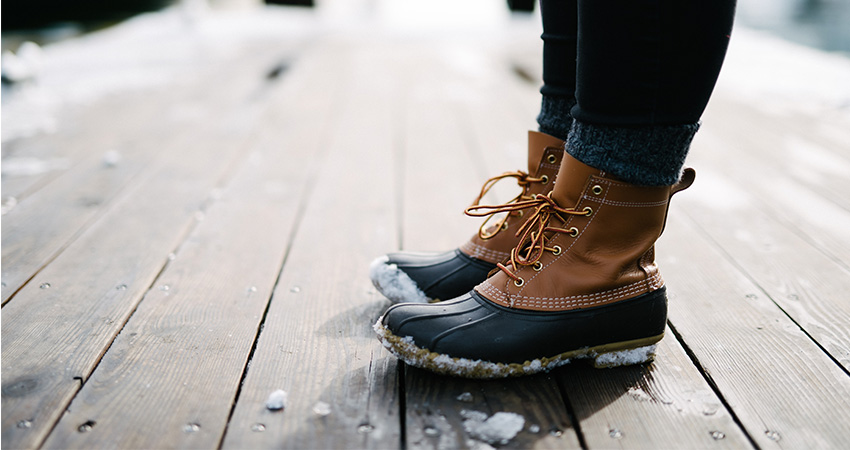L.L. Bean and its boots were made for walking into new wholesale, retail and online spheres (credit: Robert Nelson on Unsplash)
L.L. Bean, looking to expose more shoppers to its iconic, century-old mix of outdoor apparel, gear and supplies, is expanding its wholesale partnerships, opening new stores in the U.S. and Canada and launching a French-language website north of the border as well.
The retailer has signed wholesale partnerships with complementary retailer Moosejaw, now owned by Dick’s Sporting Goods, and the Dillard’s chain, which counts outdoor brand The North Face among its partners. This adds 66 new storefronts on top of L.L. Bean’s initial wholesale accounts with Nordstrom, Staples and Scheels, signed in 2020.
This fall, the company will also open two of its own stores in Massachusetts, while adding two licensed locations in the Montreal area, the first in Quebec. This is in addition to 13 licensed stores in Canada run by Ontario-based Jaytex Group. L.L. Bean has 56 owned stores in the U.S., mostly in the Northeast with a small number in Pennsylvania, Ohio, Wisconsin, Virginia, Colorado, Minnesota, Maryland and Kansas. It also has 25 stores in Japan.
Charlie Bruder, Vice President of International and Wholesale for L.L. Bean, said the new wholesale partners will carry a curated selection of the company’s products. He added L.L. Bean has largely opted not to sell its goods on marketplaces, with the exception of Amazon, Rakuten and Zozo Town in Japan.
“Domestically we don’t have any plans to enter marketplaces,” Bruder said. “In Japan we’ve seen consistent growth since launching (on those sites) in 2019. Really the focus first is on wholesale partners in the U.S. instead of marketplaces.”
Bruder said the omnichannel focus means “being everywhere our customers are,” seeing the channels as complementary, including DTC, catalog, retail and wholesale.
“It’s all about connecting with customers in their desired method and on their terms, on any device,” he said. “We’re embracing the cultural momentum of shopping online.”
Adding new wholesale partners means an opportunity for shoppers to experience L.L. Bean at their favorite retailers, without major capital expense. “It’s an easy way to expand our presence across country, introducing the brand to new customers and those who haven’t considered us for a while,” Bruder said.
Between 2014 and 2018, he said, L.L. Bean did a complete business transformation of every backend system. This enabled the company to turn on tactics like buy online, pickup in store, ship from store and shop in store, ship from DC.
As part of that, L.L. Bean uses Blue Yonder for inventory and assortment planning and forecasting, and in 2021 rolled out an Aptos POS system to power omnichannel ordering. “This was all critical in creating a seamless customer experience,” Bruder said.
The company was founded in 1912 by Leon Leonwood Bean, beginning life as a one-room store selling the Maine Hunting Shoe. Its Freeport, Maine locale was strategically chosen as a stopover by tourists en route to scenic Acadia National Park, 90 minutes to the north.
In 2018, L.L. Bean took steps to address some shoppers who were taking advantage of its famously open return policy, limiting it to items purchased in the past 12 months.

